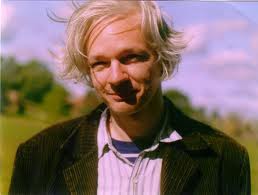The whistle-blowing website Wikileaks is suspending its publication of classified files.

The announcement came after what the group called a blockade by US-based finance companies.
This followed its disclosure on the internet of hundreds of thousands of secret US government files and diplomatic cables.
Wikileaks founder Julian Assange said that since last December an “arbitrary and unlawful financial blockade” had been imposed by Bank of America, Visa, MasterCard, PayPal and Western Union. “The attack has destroyed 95% of our revenue,” he said.
The former computer hacker said the organisation had lost “tens of millions of dollars in lost donations at a time of unprecedented operational costs”.
“A handful of US finance companies cannot be allowed to decide how the whole world votes with its pocket,” he added.
Mr Assange said Wikileaks must “aggressively fundraise in order to fight back against this blockade and its proponents”.
He said the group was taking pre-litigation action against the blockade in Iceland, Denmark, the UK, Brussels, the United States and Australia and had lodged an anti-trust complaint at the European Commission.
A Wikileaks spokesman, Kristinn Hrafnsson said its website would reopen for submissions of confidential documents on 28 November.
Mr Assange is in Britain awaiting a decision by the High Court on the appeal against his extradition to Sweden to face sex assault charges.
After the hearing in July, judges did not give a date for their decision on Mr Assange’s bid to overturn a judgment made in February.
He fears extradition to Sweden may lead to him being sent to the United States to face separate charges relating to Wikileaks, for which he could face the death penalty.
The Australian won bail in December and has been staying at Ellingham Hall, a 10-bedroom Norfolk farmhouse owned by Vaughan Smith, director of the Frontline media club.
His bail conditions include wearing an electronic tag and daily appearances at a nearby police station.
Mr Assange describes the allegations as “without basis”.

